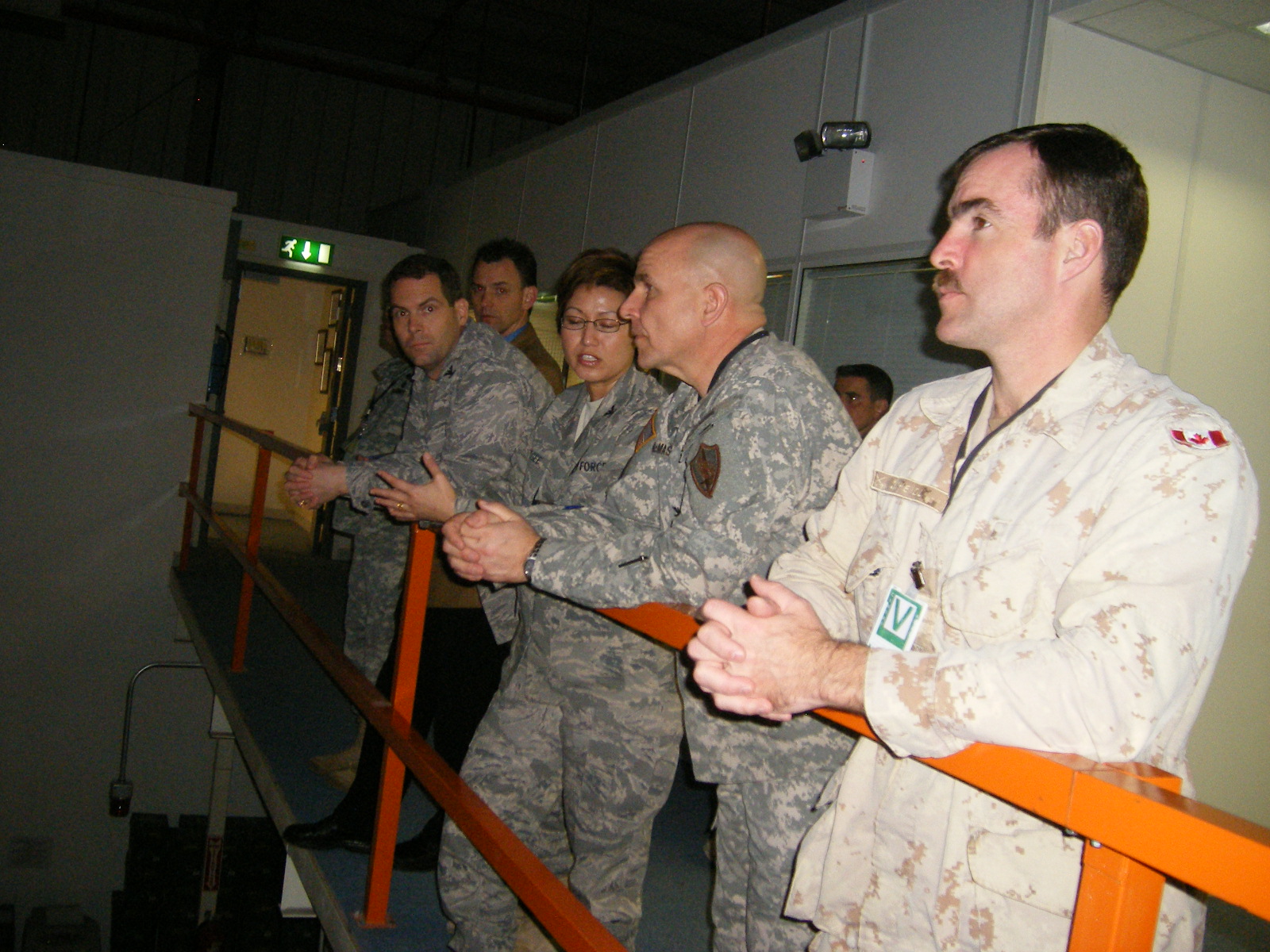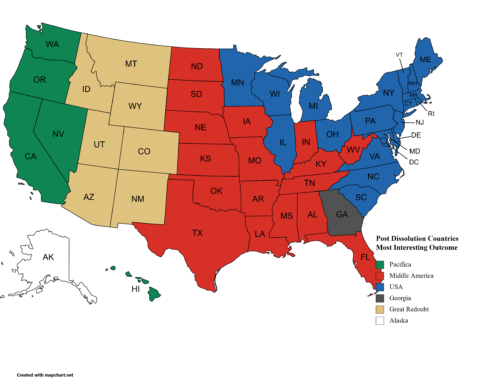Look around, leaders. Who do you see?
Yes, it is meant to be a loaded question.
We are told constantly through the popular culture and through many of our religious cultures that we are to see and value the dignity of the individual and not merely the skin colors or genders. And as far as the dignity inherent in each person as a human being, that is absolutely true. But a person needs a bit more than inherent dignity to be successful in a particular field of endeavor.
We certainly expect to see around us people competent in the tasks that we perform in our organization. Those people largely self-select, meaning they apply for positions based on their interest and competence. So depending on where we are, we should expect to see some variance in the amount of homogeneity or diversity between organizations based on what they do and who wants or can perform those functions. But how can you be sure you are not only getting the best fish in the pond, but are looking for the best fish in the bigger lake or ocean?
In March of 1991, Bob Gorman, then Assistant Managing Editor of The Item, in Sumter, SC, wrote a column in which he stated 5 times, “We are a nation of immigrants, and the rivers of a thousand lands flows through our veins.” How right he was then and still is now.
I was one of those immigrants whose parents escaped a tyrannical regime to arrive in the US in 1966. The American dream was very real for our family. My mother retired from the FBI and I separated from the Air Force after 26 years. Those experiences made me different from others who didn’t have them and that is an asset for teams I work with and for my clients. Similarly, there really are no Americans who can call themselves truly native if their ancestors came to these shores. In that respect, everyone has some valuable diversity of background.
So what does that have to do with those around you? It gets to the question of where you draw your talent from. If it is a small pond, then even if you pick out the best talent, the outcomes of what you do will necessarily be limited by who you have. If you look for your talent from larger pools, you will likely do far better.
I am certainly not talking about quotas based on origin or color or gender. But I am definitely saying that empirical research (meaning facts…evidence…not made up or fudged in stats) shows that the more diverse a team is, the better results the team comes up with. Scott Page wrote a book titled The Difference on just this topic showing case after case of empirical studies and their consistent findings that diversity trumps individual expertise. Teams of people with diverse backgrounds consistently produce better results than individual experts in that field.
For leaders this means that seeking the advice of a single individual for a key decision may be a decent option if time is of the essence, but if there is time, it is always better to gather a team of people from diverse backgrounds and interests and experiences to come up with the recommendation. If you have even the most intelligent people, but who all have a similar life experience and world view, you are very unlikely to get differing options from which to choose from those smart people. But if you have a team of good people with a wide array of backgrounds and experience then you are more likely to receive several good options from which to choose when considering an important issue.
Now does this diversity have some inherent issues? Sure. Robert Putnam, the eminent social scientist and author of numerous studies on social capital, shows that today people are more tolerant than ever before of others who aren’t like them (team, community, neighborhood) but they are also less trusting than ever. So what does this mean for you as a leader?
Trust is a social construct and is built just like any other social constructs over time. One has to accept, for example, that when a family decides to leave one country to move to another, they selected the country to relocate to not merely for benefits, but also because (assuming they had a choice) that country’s culture and political system and beliefs was most in line with what that family wanted to assimilate into. And setting aside individual outlier cases, this has been true throughout US history. Those moving here from overseas were rarely trusted by their American neighbors and communities when they first arrived. Wave after wave of immigrants were said to dilute what it means to be America. Yet those people assimilated and became pert of the fabric that made the country stronger. And the cycle continued as it does today.
The same ought to be true for businesses and government agencies. You ought to seek out people from a wide variety of backgrounds who want to bring their differences and experiences and assimilate into your corporate culture. That doesn’t mean leaving behind their individualism and identity and experiences that made them who they are. It means desiring those differences with a unifying corporate culture that makes use of that diverse background to achieve the best outcomes for the whole. And not just different skin color. Look for differences in background. Are they all wealthy and privileged? If so, don’t expect the best outcome. Try to grab people who have struggled in life. People who came from different places and world views. Who lived in more open and closed societies.
That diversity ought not be an end in itself. That shouldn’t be the goal of any organization. It is the means by which you succeed, not by which people are let out of work. In my background, I have been through countless presentations where people from multiple countries are working together in an international organization where year after year the presentations focus on respecting and understanding the various cultures with no mention of how those diverse backgrounds can achieve some common end. Many see those presentations as a thin veil for letting some people out of meeting a common standard rather than trying to encourage everyone to achieve it. Instead, my experience is that such presentations deepen the divisions precisely because leaders fail to discern how those cultural differences ought to help the organization achieve some greater objective.
Those whose culture is to work all day will never appreciate those who take long breaks simply because they are told to. Those inclined to slower and deeper contemplation will fail to appreciate the task-master simply because they are told to appreciate that culture and work harder. Absent a leader who specifically seeks out those key nuggets of diversified life experience and applies them to the objective at hand, such organizations merely limp along touting everyone’s individuality with monthly cultural presentations.
In the mid-90s, I had an extremely diverse office that worked for me. It was right out of a poster. I didn’t realize at the time what a treasure I had. I, an America refugee immigrant from Serbia, had working for me officers of Hispanic, Iranian and Chinese origin, people from the inner city of New York, some from the farm belt and others from Appalachia. I wish I knew then what I know now about pulling their unique insights to achieve a common goal.
And that said, it is important to remember that when you are a member of a diverse team, the final outcome of the group will not likely be the exact one you would have recommended. The best answer will be somewhere on the mean of the entire group. This is bigger than any individual. That’s what makes the US and those top-level organizations great. It’s about being part of something bigger than you.
If all you care about is people agreeing with you, then you might consider finding some group that looks and thinks just like you do and then have at it. Good luck. Perhaps you’ll even succeed occasionally.
Otherwise, seek out those from other industries. Seek out those from other lands. Seek out those with different degrees. Perhaps seek out those with no degree. There’s plenty out there who are more qualified than you might think. Gather as diverse a group as you can for your project and unite them to attain the objective knowing that, when you do, you and they will be picked for the next big project because the one you just nailed will add to your diverse background.
Keep thinking.






Leave A Comment